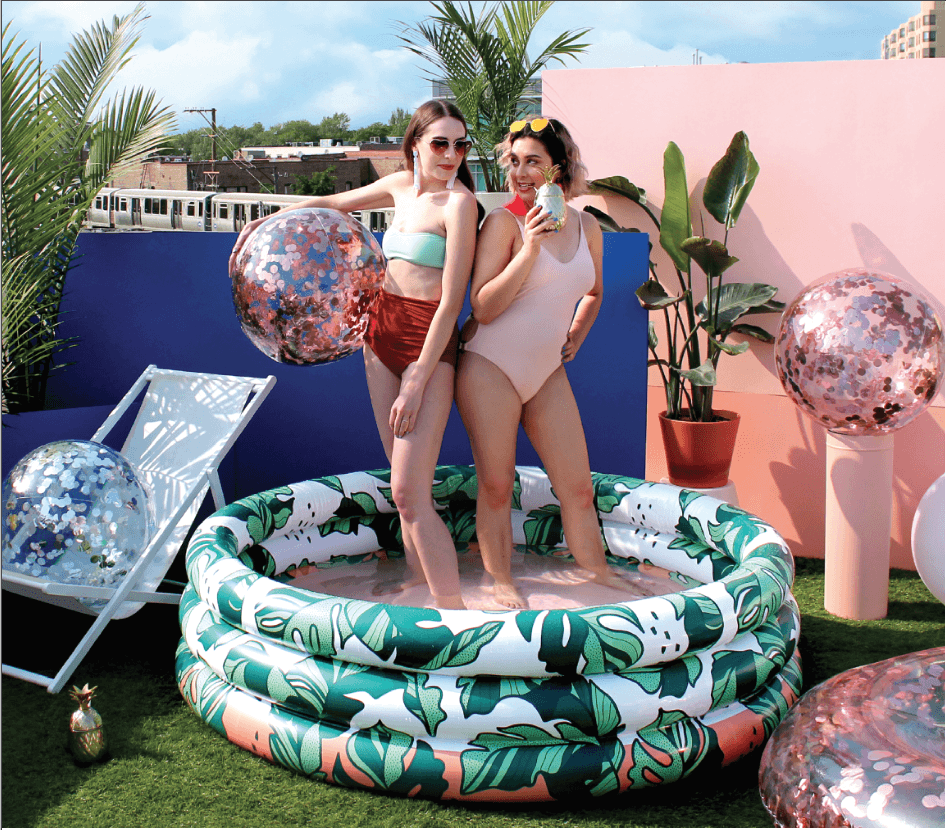Finally, A Useful Robot!
As close as you can get to “Siri, mix me a Manhattan.”
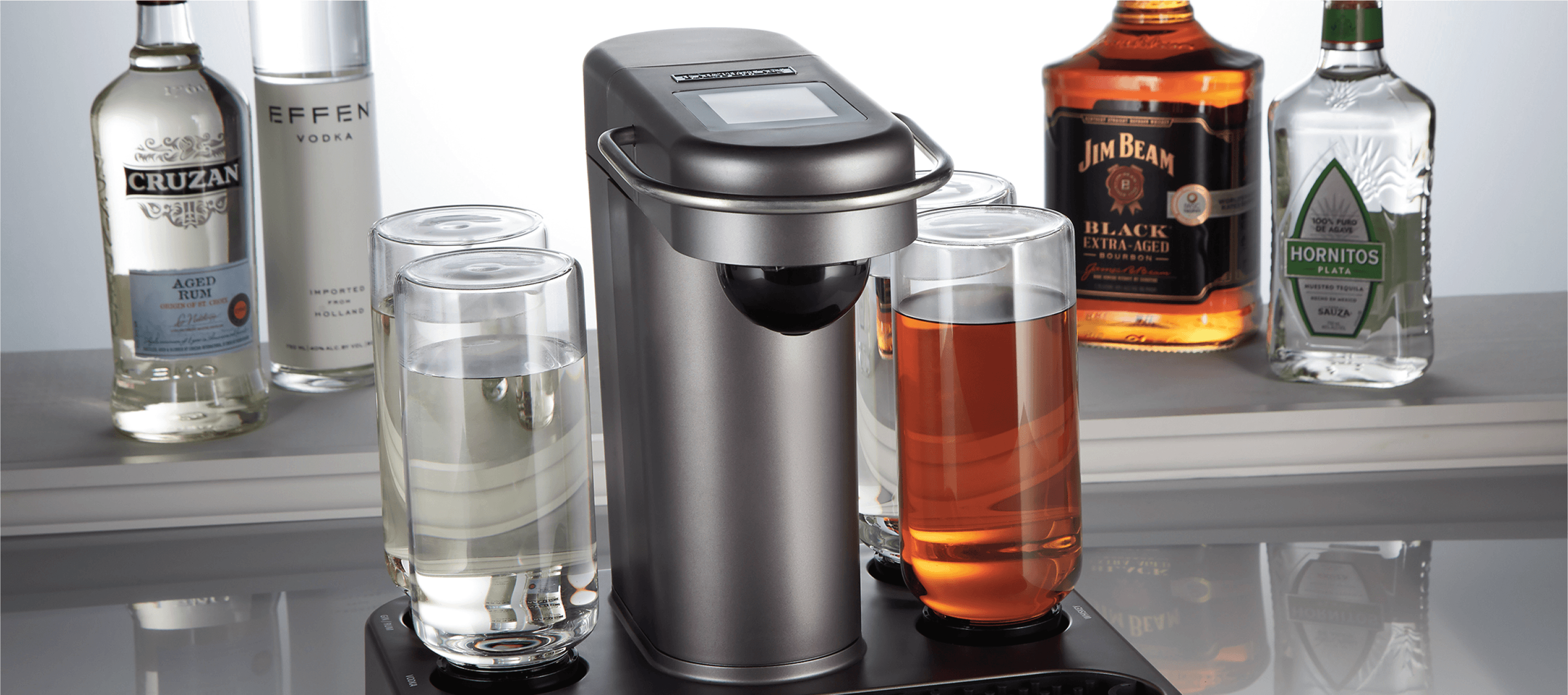
The Bartesian — a machine small enough to reside on a kitchen counter and smart enough to mix consistent, high-quality cocktails automatically – isn’t meant to replace artisanal human bartenders. It’s just that skilled mixologists usually aren’t on duty in most homes, stadium suites or marinas.
The idea for Bartesian was hatched about five years ago in Canada, according to Ryan Close, Bartesian company co-founder and CEO. He wasn’t there for the initial stages but tells the tale of two guys who were.
The pair of budding inventors started with the notion that hotel guests would enjoy pouring a well- made cocktail in the comfort of their rooms just as easily as they brewed a bracing morning cup of coffee there?
Both inventors had tended bar professionally so they knew some- thing about drinks. Moreover, both happened to hold engineering degrees and MBAs and could thus grasp a mixology machine’s technical aspects and fathom its financial potential. “Two smart dudes,” is how Close describes them.
One of the aforementioned dudes, Bryan Fedorak, cofounded the Chicago-based Bartesian company with Close. The latter brought small-business sales and marketing experience to the startup. They had met when both were members of Communitech, a community-funded tech incubator in Waterloo, Ontario.
After falling into a long conversation with Fedorak about the invention, Close considered the device “brilliant” and soon elected to commit himself to the complicated task of helping to bring it to market. Still, it couldn’t have been an easy decision because of the sacrifices and uncertainty involved.
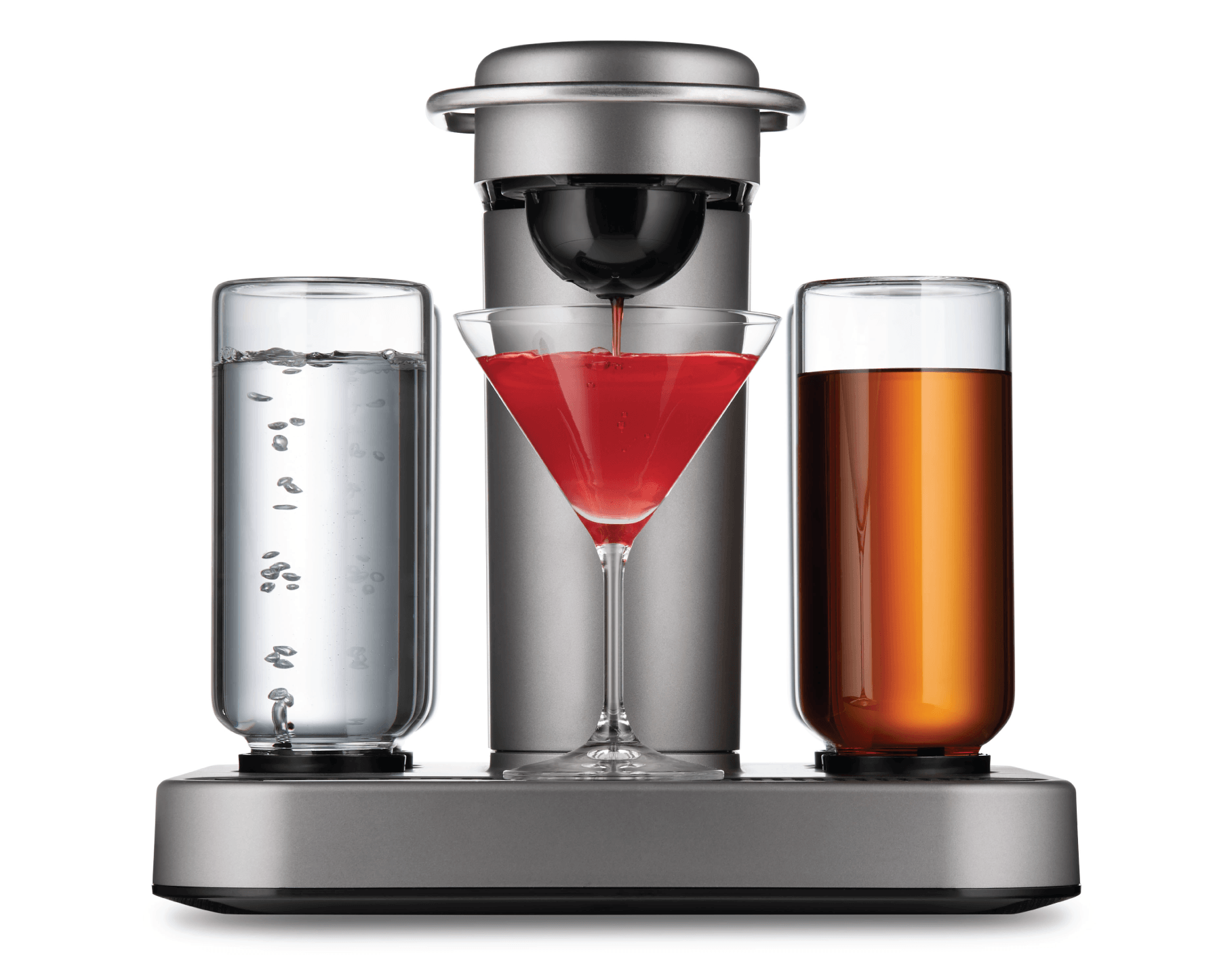
Taking A Risk

“I wasn’t sure I wanted to take the leap of faith,” Close admits. For a decade he had been commuting to Toronto where he “made good money” in a sales and marketing gig, while also performing small-business marketing services as an entrepreneurial side hustle.
Moreover, Close had a mortgage and three young children to think about. But his wife had finished her Ph.D. in psychology, opening up newfound earnings potential. “She saw the excitement in my eyes and blessed me to take the risk,” he recalls. “She said, ‘You go live out your passion. You’ll always regret it if you don’t.’”
So, Close withdrew his savings and cashed in his 401(k), and he and Fedorak set about fine-tuning the Bartesian unit and obtaining patents. At first they planned to do their own manufacturing, turning out the machines and the capsules of ingredients that feed the machines. But they soon saw that the combined costs of manufacturing and market- ing would require more capital than they could amass comfortably.
So they began seeking a deal with a consumer appliance maker. The ideal partner could capitalize, manufacture, distribute, repair and guarantee the Bartesian, they reasoned. “To raise enough money to build all those teams ourselves, you would have to dilute your company or you’re going to have a valuation that’s likely way too high for a pre-revenue company,” Close observes.
Instead, they struck a deal with Hamilton Beach, a venerable behemoth known in the home and commercial markets for blenders, mixers, toasters, slow cookers, clothes irons and air purifiers. “They’ve been around a hundred years,” Close says. “They’re a big company – solid roots.”
In 2017, the two companies signed a three-year licensing agreement and set about moving the Bartesian machine tools to a Hamilton Beach factory in China. “Luckily, the tooling was good,” Close notes, “so we were able to transition that over.”
Hamilton Beach pays Bartesian a royalty on each machine and serves as the vendor of record to e-commerce channels and brick-and-mortar stores that sell the device. Hamilton Beach is also designing two later generations of Bartesians during the three-year period.
Raising Capital
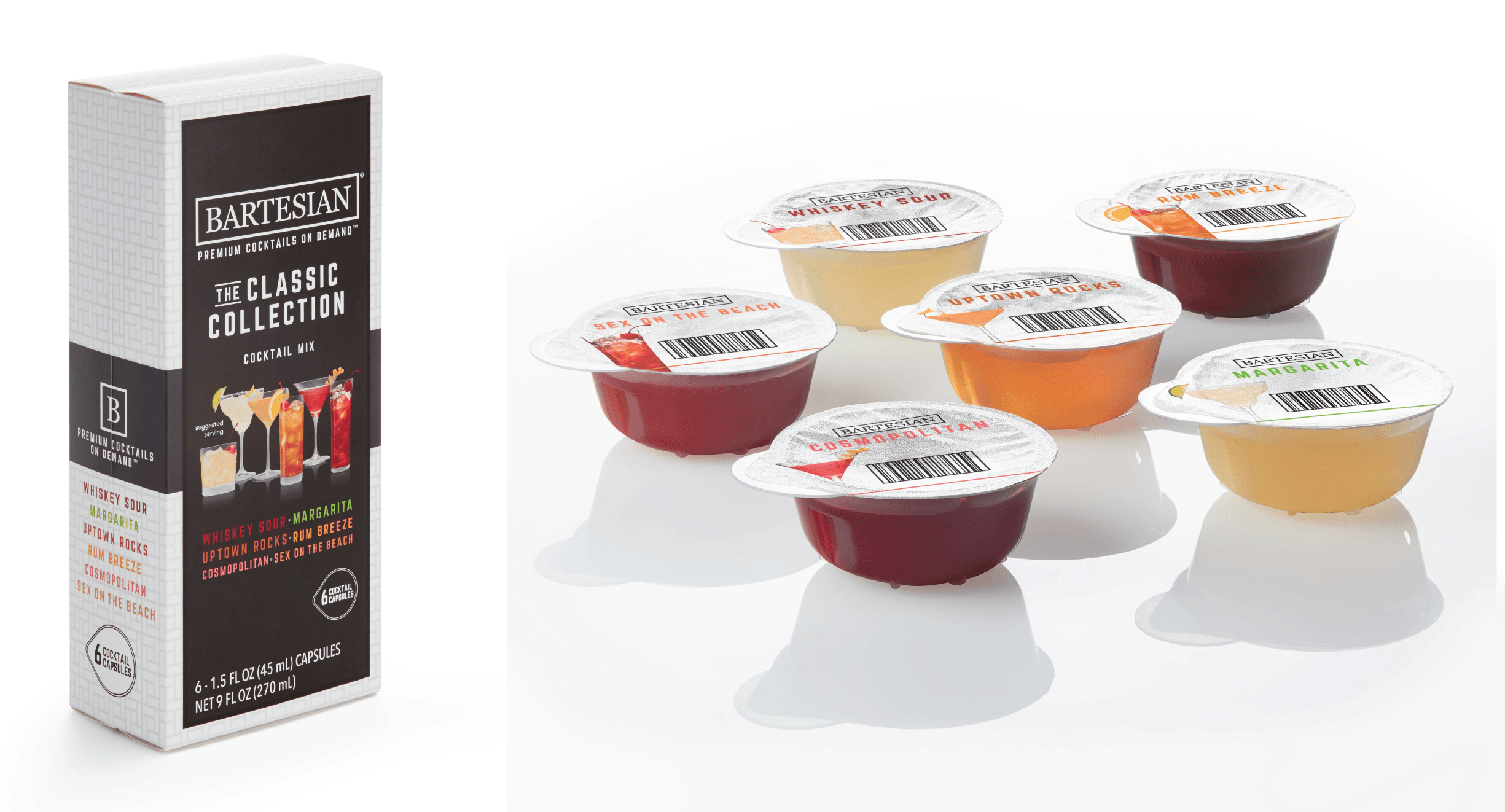
Early investors in Bartesian included Tom Ricketts, who along with other members of his billionaire family owns the Chicago Cubs and Wrigley Field. In 1975, Tom Ricketts’ father, John Joseph Ricketts, helped start First Omaha Securities, which grew into TD Ameritrade Holding Corp.
Beam Suntory, the Chicago-based subsidiary of Osaka, Japan-based Suntory Holdings, also became an early investor in 2017. Besides Jim Beam, one of the world’s best-selling bourbons, the company produces familiar brands of tequila, vodka, rum, cognac, cordials, pre-mixed cocktails, and Scotch, Canadian and Irish whiskies.
“Seeing billion-dollar companies heavily invested in our small company is a really huge feather in our cap,” Close says. The alliances carry additional benefits, too. The relationship with the Ricketts could put Bartesians in Wrigley Field luxury suites and behind the counters of the stadium’s beer and food stands. A three-year licensing agreement with Beam Suntory allows Bartesian to co-brand its mix capsules with their well-established brand names.
One step in earning the confidence of those big players came with Bartesian’s successful effort to hold down the machine’s retail price tag down to $299, low enough to make it a viable consumer product, Close notes.
“Seeing billion-dollar companies heavily invested in our small company is a really huge feather in our cap.”
Just the same, Bartesian discovered during beta testing that big commercial interests wanted to become part of the phenomenon. A major hotel chain invited Bartesian to become one of just two companies presenting innovative products at a meeting of 700 hotel general managers. Peter Sears, group president Americas for Hyatt Hotels Corp., is serving on the Bartesian board of advisors.
Whether the machines sell to consumers or to businesses, the company wants to press as many into service as possible. High volume’s especially important because having a lot of Bartesians in the world will create demand for the capsules, which in turn will provide a recurring revenue stream.
Then, too, commercial applications could intensify a particular machine’s use, Close contends. While a family might have just a few parties a year, fans would occupy stadium suites for nearly every home game or concert, and hotel rooms might fill most nights.
High volume for capsules also requires speed and efficiency on the part of the machine. Bartesian needs just 20 seconds to mix a cocktail, according to Close. “There’s zero warmup time – there’s zero cool-down time,” he continues. “It self-cleans after every capsule. When you put in a margarita, you’re not getting remnants of a cosmo.” At a recent event in Los Angeles, 80 people were imbibing the fruits of the device. “It was a party,” he emphasizes.
High volume for capsules also requires speed and efficiency on the part of the machine. Bartesian needs just 20 seconds to mix a cocktail, according to Close. “There’s zero warmup time – there’s zero cool-down time,” he continues. “It self-cleans after every capsule. When you put in a margarita, you’re not getting remnants of a cosmo.” At a recent event in Los Angeles, 80 people were imbibing the fruits of the device. “It was a party,” he emphasizes.
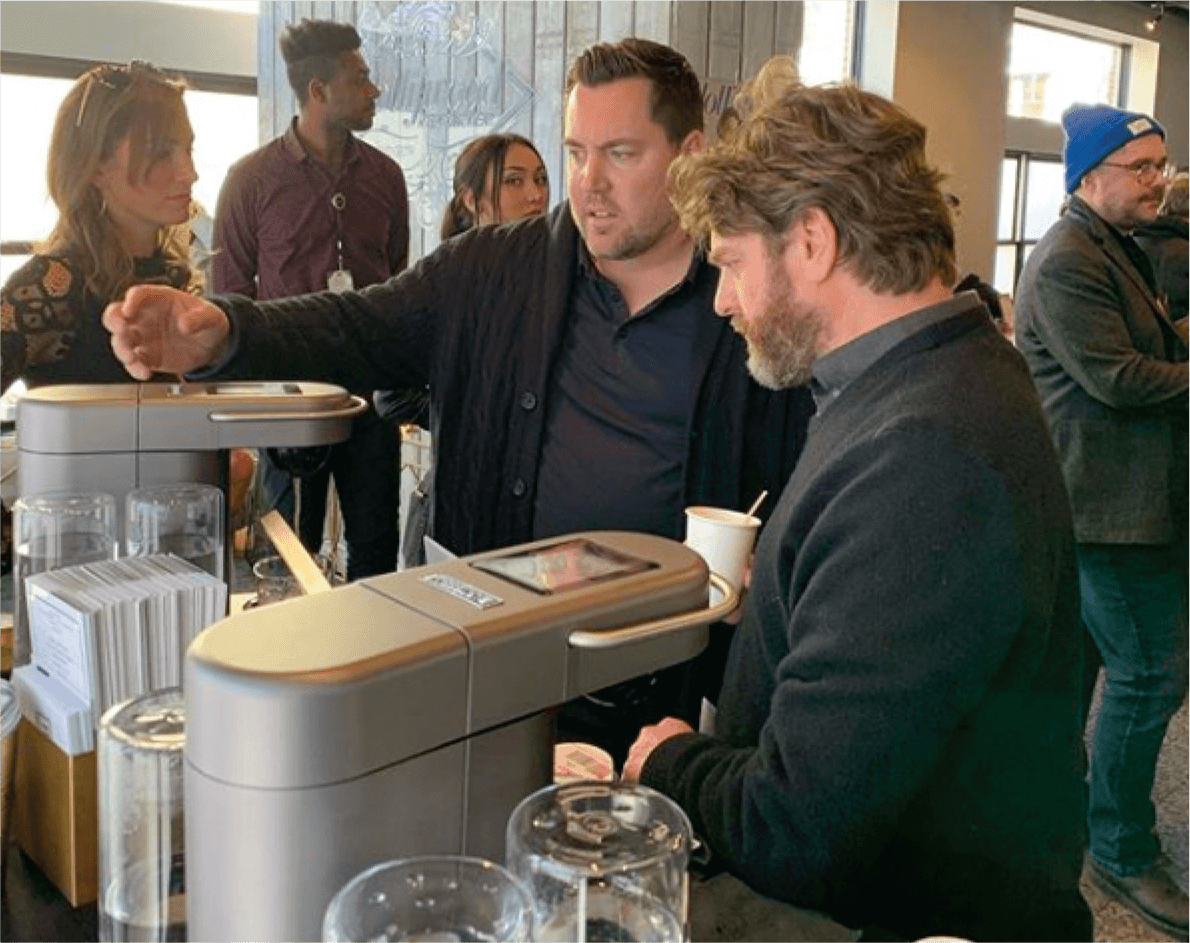
Six Cocktails, More to Come
Capsules for six different drinks are available today, Close says, but the company has already developed capsules with ingredients for several dozen more cocktails, including sazeracs, negronis, and boulevardiers. Capsule releases could generate interest and publicity, he notes. Tying introductions to events would make sense, like offering mint juleps in time for the Kentucky Derby or candy cane martinis for the holidays.
Initial outlets for Bartesians will include several major retailers, and consumers will find capsules in liquor stores, on Amazon and on the Bartesian website. Many major retailers have expressed interest, and Bartesian hopes the machine will become the gift of the year in the 2019 holiday season.
He describes the capsules’ ingredients as “the real stuff – bitters, liqueurs and juices,” rather than powder or concoctions laced with high-fructose corn syrup. The company is aiming for discerning customers, he maintains. “Right now, we’re just focused on delighting the consumer and making life easier when you want to host and have a nice drink,” he says.

